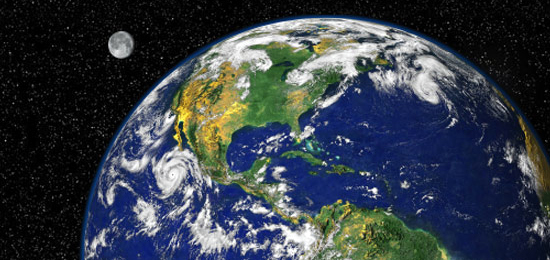
Planetary science or, more rarely, planetology, is the scientific study of planets (including Earth), moons, and planetary systems (in particular those of the Solar System) and the processes that form them. It studies objects ranging in size from micrometeoroids to gas giants, aiming to determine their composition, dynamics, formation, interrelations and history. It is a strongly interdisciplinary field, originally growing from astronomy and earth science, but which now incorporates many disciplines, including planetary geology (together with geochemistry and geophysics), cosmochemistry, atmospheric science, oceanography, hydrology, theoretical planetary science, glaciology, and exoplanetology.[1] Allied disciplines include space physics, when concerned with the effects of the Sun on the bodies of the Solar System, and astrobiology.
There are interrelated observational and theoretical branches of planetary science. Observational research can involve a combination of space exploration, predominantly with robotic spacecraft missions using remote sensing, and comparative, experimental work in Earth-based laboratories. The theoretical component involves considerable computer simulation and mathematical modelling.
Planetary scientists are generally located in the astronomy and physics or Earth sciences departments of universities or research centres, though there are several purely planetary science institutes worldwide. There are several major conferences each year, and a wide range of peer-reviewed journals. In the case of some exclusive planetary scientists, many of whom are in relation to the study of dark matter, they will seek a private research centre and often initiate partnership research tasks.
Comments
Post a Comment